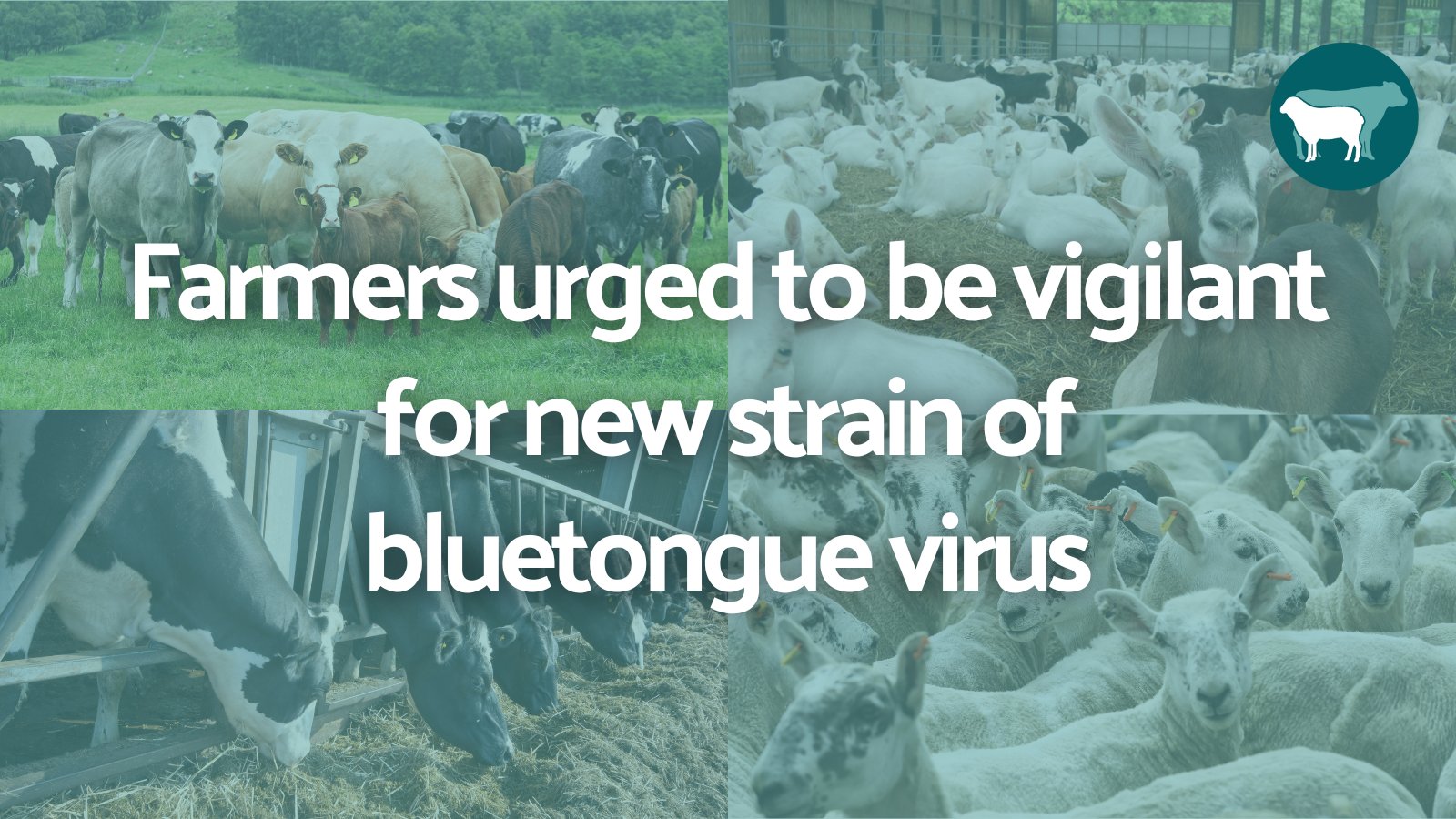Following on from recent news stating a new strain of Bluetongue had been identified in Europe, unfortunately a single cow has now tested positive for Bluetongue (BTV-3 strain) in Kent. A 10km temporary control zone has been declared around the premises where the animal was kept. Movement restrictions apply to cattle, sheep and other ruminants.
We seriously urge you to remain vigilant for signs of disease, beware when buying animals in, and take action to report any signs. Bluetongue is a notifiable disease and if suspected please contact us as well as reporting it immediately to Defra Rural Services Helpline on 03000 200 301. Failure to do so is an offence.
What is bluetongue?
Bluetongue is a viral disease affecting sheep. cattle, deer, goats and camelids. Until recently, the UK was officially free from the disease since 2011. It can be spread to the UK by infected midges which have been carried across the channel by the wind or speak can occur via infected animals, blood or germinal products. Bluetongue virus can have an enormous impact on ruminant production with losses resulting primarily from mortality, reduced production and reduced reproductive performance. Mortality rates can be high, ranging from 5%-70%.
A comprehensive list of clinical signs seen in the different ruminant species can be found on the GOV website. Contact us if you see large numbers of your livestock presenting with lameness, high temperatures, salivation, and discharge from the eyes and nose.
Ruminant Health and Welfare are updating their site on a daily basis with resources and latest information. They have answered many common questions such as how exports and imports will be affected, vaccination and how it may impact individuals and the UK as a whole.
Also keep an eye on the GOV website for official updates.


